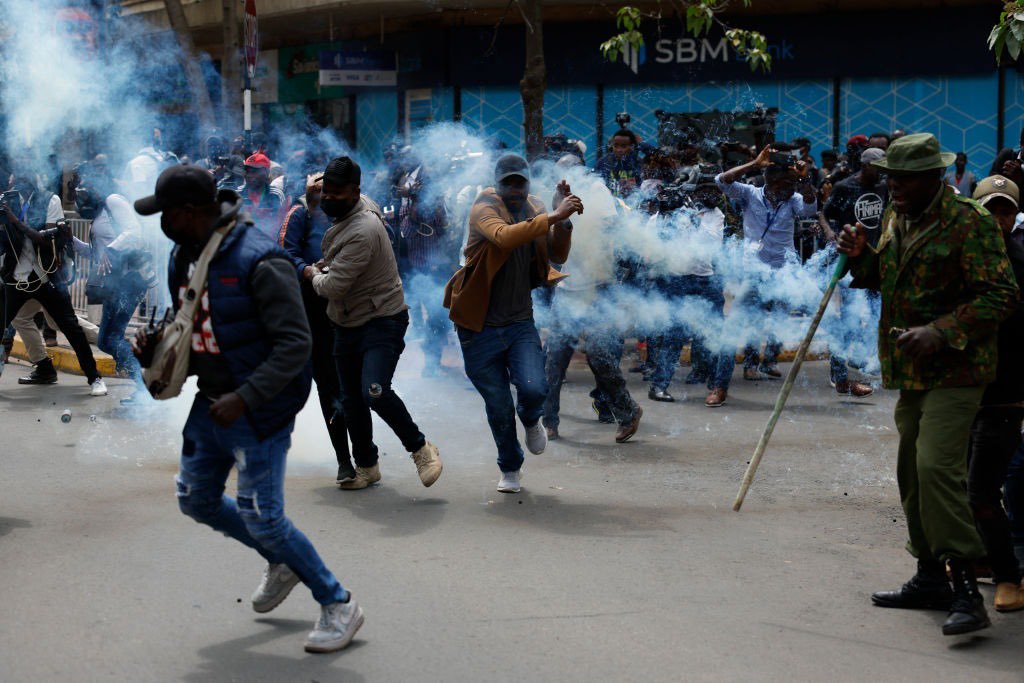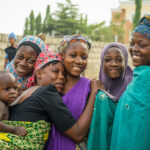With 70% of its population under the age of 30, Africa is considered to be the youngest continent in the world. If this translates into a relatively agile workforce, it also means a history of rebellions, as seen lately. Since the early 2010s, the continent has been dogged by a wave of protests. In contrast to previous mass movements, these youth demonstrations have often been without leaders, underscoring a natural disdain for authority. These revolts have heralded sweeping changes in national governments, sparking a succession of similar revolts in neighbouring locations. However, they have not all been successful, with some leaving a sad trail of extrajudicial killings and detentions instead. Despite the odds, young African protesters continue to stand against an ageing political elite, as inflation and poverty run rampant on the continent. From Nigeria to Tunisia, below are four mass movements that have rocked Africa in recent years. Despite their varying outcomes, these protests share one common bond—social media.
Arab Spring
On the evening of December 17, 2010, news of a young Tunisian’s revolt against harassment by the municipal police went viral on Facebook. Mohamed Bouazizi had been reportedly harassed by a female officer earlier in the day, prompting the vegetable vendor to lodge a complaint at the local governor’s office. When the governor didn’t give him a hearing, 26-year-old Bouazizi doused himself with petroleum and set his body ablaze just outside the governor’s office.
Bouazizi’s unfair treatment by the municipal officials and his subsequent self-immolation became a lightning rod for public anger, as his plight came to symbolise the injustice and economic hardship afflicting many Tunisians under the Ben Ali regime. By the time Bouazizi succumbed to his wounds on January 4, 2011, protests had broken out all across Tunisia, with demonstrators demanding the removal of President Zine El-Abidene Ben Ali. Forceful attempts by President Ben Ali to quell the rioting were unsuccessful, as protesters clashed with police, leading to dozens of deaths.
As the violence escalated, President Ben Ali delivered a national broadcast promising to reduce food prices and hand over to a successor after his tenure’s end in 2014. More rioting only followed, drawing international criticism. On January 14, a 23-year authoritarian regime came to an end as President Ben Ali was forced to resign and flee the country. The success of Tunisia’s uprising inspired a wave of similar protests in countries across North Africa and the Middle East, which collectively became known as the Arab Spring.
EndSars
When a disturbing clip surfaced on X (formerly Twitter) on October 4, 2020, there was little reason to think that the brewing tensions would snowball into a global phenomenon. But the graphic footage showing officers from the defunct SARS unit dragging two men from a Lagos hotel and shooting at one of them struck a raw nerve with Nigerians. Alongside arbitrary arrests and illegal detentions, SARS officers were notorious for harassing and extorting money from fashionable young Nigerian males. Nigerians flooded the streets in the days that followed, registering their demands for police reforms in the battle cry: EndSARS.
The hashtag accrued over 28 million tweets, as tens of thousands of youths campaigned day after day in almost every Nigerian state. The EndSARS protests were sustained by voluntary donations by Nigerians and the international community. Solidarity protests were held in notable cities across Europe and the US. On October 11, the Nigerian Police Force announced that it had dissolved the notorious SARS unit, but, noting the government’s record of unmet promises, the protesters didn’t buy it. President Muhammadu Buhari’s response to the protests further fuelled the unrest, which had begun to draw support from global celebrities, including Jack Dorsey and Beyoncé.
A little after dusk on Tuesday, October 20, 2020, as protesters gathered around the Lekki Toll Gate, humming the national anthem, the Nigerian military fired live rounds at the crowd. At least a dozen protesters were said to have been killed at various protest venues in Lagos, according to Amnesty International, with scores injured. The Nigerian army has repeatedly denied wrongdoing.
Kenya Finance Bill Protests
The past few weeks have been without respite in Kenya, where disillusioned youths have been protesting against a controversial tax bill for weeks on end. The bill, which was part of the 2024/2025 budget, aimed to increase government revenues with heavy taxes on essential foods and services. Younger Kenyans initially condemned the tax reforms on TikTok and X in May 2024, when the bill was proposed.
By June, the outcry on social media had spilled over into physical protests in the capital city of Nairobi. A largely peaceful protest devolved into rioting as demonstrators clashed with security forces, leaving several protesters dead. At least 50 people have died so far, according to a tally by a human rights watchdog, in what has been dubbed Kenya’s Gen Z protests. Calling the mass movement “treasonous,” President William Ruto deployed further brute force to strengthen the crackdown. More killings followed, but the protesters remained unfazed, launching a 7-day rage of heavy demonstrations across the East African country.
On June 26, 2024, following mounting pressure, President Ruto announced the withdrawal of the Finance bill in a televised address. Notwithstanding, the protests have kept pace, with Kenyans calling for the president’s resignation following the high cost of living and increasing taxation that have marked his regime. For nipping the contentious Finance Bill in the bud, the Kenyan Protests have served as an inspiration to countries such as Uganda and Nigeria, where tensions are also brewing.
Zimbabwe Fuel Protests
After 37 years of authoritarian rule, President Robert Mugabe resigned from office, much to the public’s delight. But the exit of the dictator didn’t lead to expected economic prosperity for Zimbabweans. On January 12, 2019, the new government of Emmerson Mnangagwa abruptly declared a 130% increase in the price of petroleum products, making Zimbabwe the most expensive place in the world to fuel a car. A litre of diesel consequently rose from $1.38 to $3.11 overnight.
A major unrest unfolded two days later, on July 14, as protests broke out in the two major cities of Harare and Bulawayo. The government responded in a typical show of lethal force. While the police and military raided the homes of residents, cellular network providers blocked Internet service, leading to a total blackout. This Internet crackdown came at a punishing cost to the economy: an estimated $17 million.
By the end of the 3-day protests, at least a dozen protesters were killed by security operatives, according to human rights groups in Zimbabwe. A large number of citizens abducted during the protests remain unaccounted for till today.
Africa has a predominantly young population, with 70% under 30, leading to an agile workforce but also numerous youth-led protests since the early 2010s. These leaderless movements have led to significant political changes, although often with violent repercussions. Notable protests include the Arab Spring in Tunisia, EndSARS in Nigeria, Finance Bill Protests in Kenya, and Fuel Protests in Zimbabwe, all significantly amplified by social media.
The Arab Spring began in Tunisia after Mohamed Bouazizi's self-immolation in 2010, resulting in President Ben Ali's resignation and inspiring similar uprisings across North Africa and the Middle East. The EndSARS movement in Nigeria erupted in 2020 over police brutality by the SARS unit, leading to its dissolution but followed by violent crackdowns on protesters.
In 2024, Kenyan youths protested a controversial tax bill, leading to numerous deaths and eventually the bill's withdrawal by President William Ruto. The Zimbabwe Fuel Protests in 2019 saw a dramatic rise in fuel prices, sparking protests met with lethal government force, internet blackouts, and numerous casualties.






